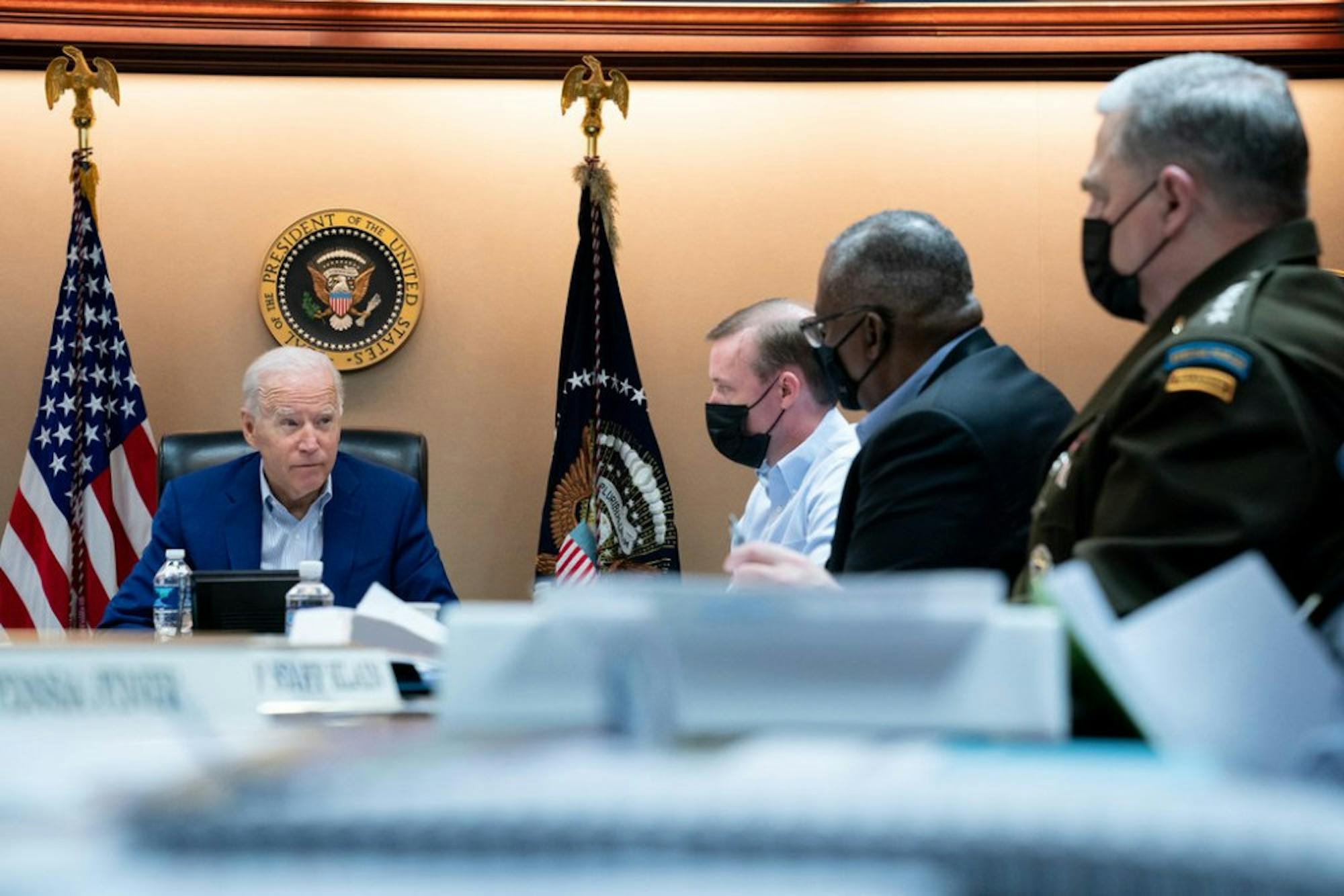
In President Joe Biden’s recent remarks on the U.S. military’s withdrawal from Afghanistan, he indicated that the U.S. is shifting its focus inwards and away from nation building efforts. While the American public supports this new policy focus, Biden’s latest move is a dangerous abdication of our global responsibility to repay our debt to other countries, including Afghanistan, for our past and current exploitation of foreign economies.
The U.S. should reaffirm its commitment to Afghanistan and other nations it has harmed in the form of investment in health care, hard infrastructure and education conditioned on respect for human rights and political freedoms instead of political and military domination. This is not a specific indictment of the Biden administration. Rather, it is a critique of the broader U.S. approach to nation building, and the implied isolationism in the new position on Afghanistan.
With the fifth highest GDP per capita in the world and accounting for 39% of all military spending, the U.S. sits in a position of privilege. This level of power and affluence relies on a global network of economic exploitation which stems from the legacy of American colonialism. The U.S. has historically used military intervention to increase its own wealth at the expense of the stability of other regions, particularly in South America and the Middle East. Instead of aggressively interfering in other countries’ governance, U.S. foreign policy needs to be directed toward putting some of the wealth it has accumulated from this historical exploitation back into the nations that suffer today as a result.
With more than 170,000 dead in Afghanistan in a war caused by U.S. actions, it’s clear that U.S. military intervention is a dangerous game with massive consequences. The U.S. is responsible for those deaths, but withdrawing is not the answer. Traditional methods of intervention, where the U.S. imposes values, political systems and military forces on a country, create a backlash against the U.S. and push the target nation further into authoritarianism or anarchy. By approaching intervention with care, respect and non-military means, the U.S. can have sizable positive effects for human rights and economic well being by expanding civil liberties and human rights in many countries where U.S. influence is brought to bear.
By helping other nations, the U.S. will benefit in tandem as engagement with foreign powers historically helps foster close bonds. Just after defeating Japan and Germany in World War II, the U.S. invested heavily in both countries, contributing to their development into some of the wealthiest countries in the world and fostering close alliances and trade relations. In Colombia, the U.S. spent sixteen years of economic investment and military support to stabilize the government, and ended by contributing to the reconciliation of the ruling party and military insurgents in the country, effectively preventing drug running to the U.S. The Taliban allowed al Qaeda to harbor in Afghanistan prior to the 9/11 attacks, and the conflict in Syria, buoyed by U.S. and other foreign military interventionism, contributed to the rise of the Islamic State. U.S. nation building efforts help protect ourselves as well as the people under the rule of violent, unstable or oppressive regimes. Certainly, U.S. nation-building efforts do not give it free rein to impose its own systems on other countries, but they show that nation-building not only reduces threats against the U.S. but also creates economic and strategic allies for the U.S.
The key to successful nation building is not only to make a long-term commitment to a region but also to willingly invest heavily in it. Military action should be a last resort, if it is even on the table. Instead, the main focus should be on economic development, coupled with respect for the people, culture and norms of the nation.The question of whether a nation building project should be undertaken should be determined by the will of the people of the target nation and the history of U.S. relations with the country. The U.S. must clean up its messes using its political and economic power throughout the world. The nascent freedoms of millions of Afghans have been snuffed out by the inability of the U.S. to commit to serious, invested nation building. In light of its responsibility for the situation in Afghanistan, U.S. inaction now is unconscionable.
William Wainwright (25C) is from Atlanta, Georgia.





